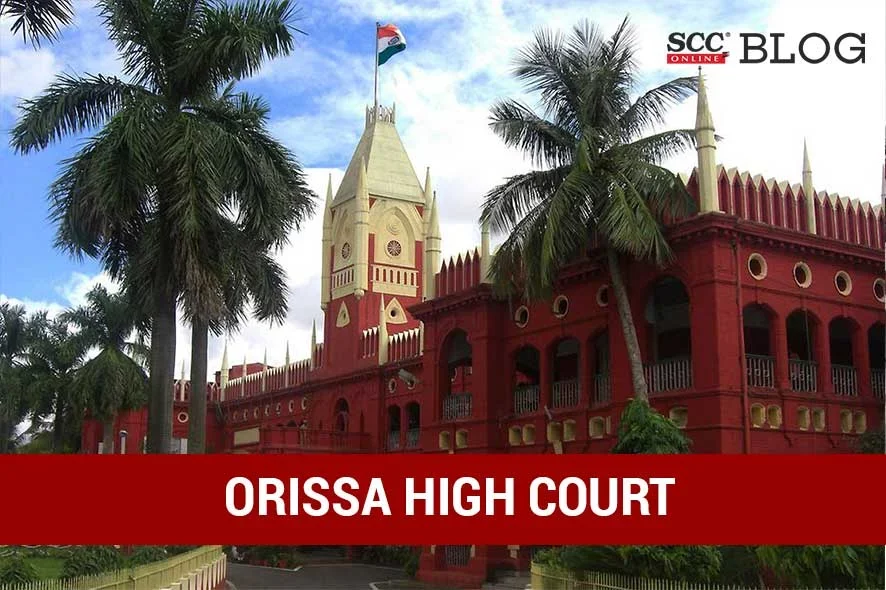Orissa High Court: In a criminal petition filed under Section 482 of the Code of Criminal Procedure, 1973 (‘Cr.P.C’), wherein the Input Editor (‘petitioner’) in Orissa Television Ltd. (‘OTV’) was seeking to quash the criminal proceedings pending against him in the Court of Sub-Divisional Judicial Magistrate (‘S.D.J.M’), Bhubaneswar under Sections 269, 270, 120-B and 505(1)(b) of the Penal Code, 1860 (‘IPC’) read with Section 52 of the Disaster Management Act, 2005, the Single Judge Bench of Dr. S. Muralidhar*, CJ., allowed the petition and quashed the proceedings against the petitioner.
Background
An audio recording of a telephonic conversation between two men, one of whom claimed to have returned from a COVID Hospital after being identified as Corona positive was telecast by the OTV News Channel on 06-08-2020. The said conversation was also uploaded on Youtube and other social media platforms by OTV. The allegation was that one of the men in the conversation had undermined the seriousness of the corona pandemic and claimed that it would be cured without treatment and medicines.
A First Information Report (‘FIR’) was registered under Sections 269, 270, 120-B and 505(1)(b) of the IPC read with Section 52 of the Disaster Management Act, 2005, on the ground that by telecasting the said audio recording, OTV was dissuading the public from availing the requisite treatment, thereby, causing an increase in the spread of COVID. It was further alleged that fear/alarm was spread in the public regarding the medical treatment protocol and clinical management of COVID patients by circulation of such audio recording. It was also alleged that the OTV was spreading false information regarding misappropriation of Central Government funds for the treatment of COVID patients and admission of fake cases just to meet the daily targets by the Bhubaneswar Municipal Corporation (‘BMC’) and other private COVID hospitals.
Court’s Decision
The Court perused the conversation in the audio recording and said that the respondent’s counsel was unable to point out which precise portion of the said conversation answered the description of the offence of spreading panic and causing alarm amongst the members of the public. Further, the Court said that the conversation in its entirety revealed that it did give certain precaution pointers a COVID positive might want to take and the kind of treatment he/she may or may not require. The Court also said that it did highlight the importance of using masks and taking steps to prevent the spread of the COVID pandemic.
The Court said that the telecasting of the said audio clip did cause unnecessary panic among the public. The Court referred to Rishipal Singh v. State of U.P., (2014) 7 SCC 215, wherein it was held that the High Court should not allow a vexatious complaint to continue, which would be a pure abuse of the process of the law and the same must be interdicted at the threshold.
The Court also referred to Arnab Ranjan Goswami v. Union of India, (2020) 14 SCC 12, wherein it was observed that the exercise of journalistic freedom lies at the core of speech and expression protected by Article 19(1)(a). The exercise of that fundamental right is not absolute and is answerable to the legal regime enacted with reference to the provisions of Article 19(2). But to allow a journalist to be subjected to multiple complaints and to the pursuit of remedies traversing multiple states and jurisdictions when faced with successive FIRs and complaints bearing the same foundation has a stifling effect on the exercise of that freedom.
Therefore, upon a careful perusal of the complaint/FIR and the transcript of the conversation, the Court said that it was satisfied that the offences under which the FIR was registered, were not made out against the Petitioner. The Court also said that indeed, the conversation appeared to be a casual one not intended to cause panic in the public and that it was highly unlikely that such conversation would somehow induce the public to avoid treatment for Covid thus, resulting in the spread of the pandemic and much less still induce the public to commit offences against the State. Therefore, the Court viewed that continuation of such criminal case against the Petitioner, who is an Input Editor of OTV, was likely of having a chilling effect on freedom of the Press.
Thus, the Court allowed the petition and the proceedings pending in the Court of S.D.J.M., Bhubaneswar and all the proceedings consequent thereto were quashed.
[Swadheen Kumar Raut v. State of Odisha, 2023 SCC OnLine Ori 3703, Decided on 28-06-2023]
*Judgment Authored by: Chief Justice Dr. S. Muralidhar









